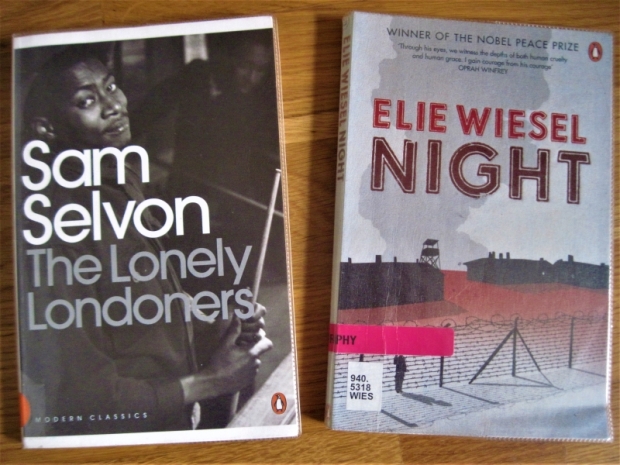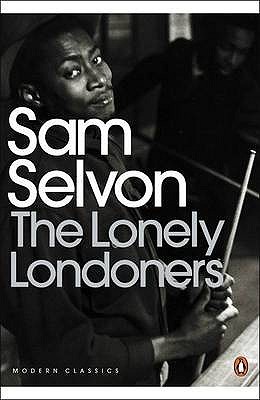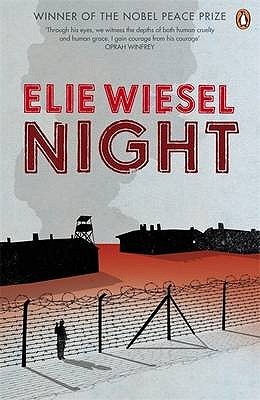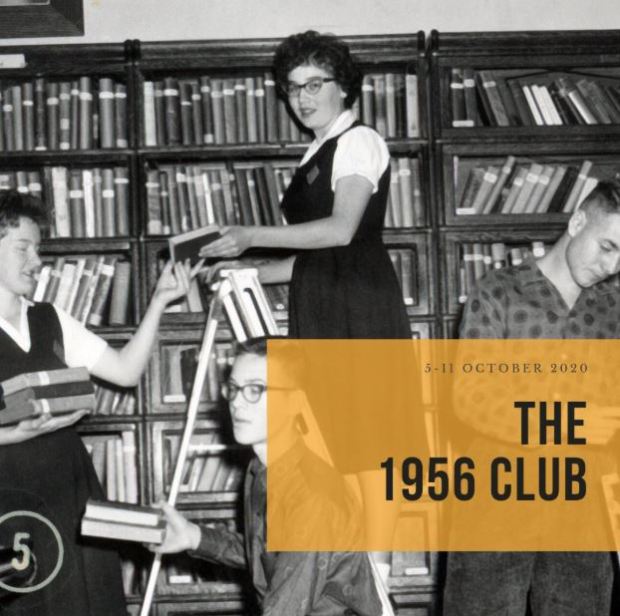It’s my second time participating in one of Simon and Karen’s reading weeks (after the 1920 Club earlier this year). It was a boon that the two books I chose and borrowed from the library were of novella length. As in April, I managed one very enjoyable read and one slightly less successful skim.

The Lonely Londoners by Sam Selvon
This title was familiar to me because it was one of the texts the London secondary school students could choose to review for a special supplement of Wasafiri literary magazine when I did a few in-school sessions mentoring them in the basics of book reviewing in early 2014. (An experience that was totally outside my comfort zone and now feels like a lifetime away.)
 Selvon, a Trinidadian journalist who settled in London in 1950, became known as the “father of black writing” in Britain. Moses Aloetta, an expert in London life after a few years here, lends a hand to his West Indian brethren who are fresh off the boat. As the book opens, he’s off to meet Henry Oliver, whom he soon dubs “Sir Galahad” for his naïve idealism. Moses warns Galahad that, although racism isn’t as blatant as in America, the British certainly aren’t thrilled about black people coming over and taking their jobs. Galahad reassures him that he’s a “born hustler.” We meet a series of other immigrants, like Cap and Bart, who move flats and change jobs frequently, drink and carouse, and “love woman too bad.”
Selvon, a Trinidadian journalist who settled in London in 1950, became known as the “father of black writing” in Britain. Moses Aloetta, an expert in London life after a few years here, lends a hand to his West Indian brethren who are fresh off the boat. As the book opens, he’s off to meet Henry Oliver, whom he soon dubs “Sir Galahad” for his naïve idealism. Moses warns Galahad that, although racism isn’t as blatant as in America, the British certainly aren’t thrilled about black people coming over and taking their jobs. Galahad reassures him that he’s a “born hustler.” We meet a series of other immigrants, like Cap and Bart, who move flats and change jobs frequently, drink and carouse, and “love woman too bad.”
I read and enjoyed the first 52 pages but skimmed from that point on because the patois, while initially captivating, got to be a bit much – I have a limited tolerance for dialect, and for episodic storytelling. I did love the sequences about Galahad catching pigeons for food and Cap following up with seagulls. There is a strong voice and sense of place here: if you want to experience London in the 1950s and see a rarer immigrant perspective, it would be a great choice. (Also recently reviewed by Liz and Annabel.)
Representative passages:
“It have people living in London who don’t know what happening in the room next to them, far more the street, or how other people living. London is a place like that. It divide up in little worlds, and you stay in the world you belong to and you don’t know anything about what happening in the other ones except what you read in the papers.”
the nine-page stream-of-consciousness paragraph that starts “Oh what a time it is when summer come to the city and all them girls throw away heavy winter coat and wearing light summer frocks so you could see the legs and shapes that was hiding away from the cold blasts”
My rating: 
Night by Elie Wiesel
[Translated from the French by Marion Wiesel]
A short, harrowing memoir of concentration camp life. Eliezer Wiesel was a young teenager obsessed with the Kabbalah when his family was moved into a Romanian ghetto for Jews and then herded onto a transport train. Uniquely in my reading of Holocaust memoirs, Wiesel was not alone but had his father by his side for much of the time as they were shuttled between various concentration camps including Auschwitz and Buchenwald, from which he was liberated in April 1945. But if the presence of family started as a blessing in a life of privation and despair, it became more of a liability as his father fell ill with dysentery.
 Like Viktor Frankl, Wiesel puts his survival down to luck: not once but several times, he and his father were sent to the left (towards the crematoria), but spared at the last minute. They endured infection, a stampede, a snowstorm and near-starvation. But their faith did not survive intact. “For God’s sake, where is God?” someone watching the hanging of a child burst out. “And from within me, I heard a voice answer: ‘Where He is? This is where—hanging here from this gallows.’” I’d heard that story before, twisted by Christian commentators into a “Hey, that’s like Jesus on the cross! God is right here suffering with us” message when actually it’s more “God is dead. God has abandoned us.”
Like Viktor Frankl, Wiesel puts his survival down to luck: not once but several times, he and his father were sent to the left (towards the crematoria), but spared at the last minute. They endured infection, a stampede, a snowstorm and near-starvation. But their faith did not survive intact. “For God’s sake, where is God?” someone watching the hanging of a child burst out. “And from within me, I heard a voice answer: ‘Where He is? This is where—hanging here from this gallows.’” I’d heard that story before, twisted by Christian commentators into a “Hey, that’s like Jesus on the cross! God is right here suffering with us” message when actually it’s more “God is dead. God has abandoned us.”
From the preface to a new translation by his wife, I learned that the original Yiddish manuscript was even bleaker in outlook, with opening and closing passages that voice a cynical loss of trust in God and fellow man. “I am not so naïve as to believe that this slim volume will change the course of history or shake the conscience of the world. Books no longer have the power they once did. Those who kept silent yesterday will remain silent tomorrow” was the chilling final line of his first version. And yet Night has been taught in many high schools, and if it opens even a few students’ eyes – given the recent astonishing statistics about American ignorance of the scope of the Holocaust – it has been of value.
Wiesel won the Nobel Peace Prize in 1986. His acceptance speech is appended to the text of my 2008 Penguin paperback. In it he declares: “I swore never to be silent whenever and wherever human beings endure suffering and humiliation. We must take sides. Neutrality helps the oppressor, never the victim. Silence encourages the tormentor, never the tormented. Sometimes we must interfere. When human lives are endangered, when human dignity is in jeopardy, national borders and sensitivities become irrelevant. Wherever men and women are persecuted because of their race, religion, or political views, that place must—at that moment—become the center of the universe.” Wise words with perennial relevance.
My rating: 

Both of these kook worth a read. Books from 1956 are surprisingly hard to come by, I’ve found. They fall between the stools of not being recently published, and not being classics either.
LikeLike
From this list, the others I’d read were The Last Battle by C.S. Lewis, Giovanni’s Room by James Baldwin, My Family and Other Animals by Gerald Durrell, The Towers of Trebizond by Rose Macauley, Howl by Allen Ginsberg, and My Dog Tulip by J.R. Ackerley. All of those are probably obtainable from a library.
https://www.goodreads.com/book/popular_by_date/1956
LikeLike
I’ve read all but the last two – but admittedly some time ago – thanks
LikeLiked by 1 person
I also have a low tolerance for dialect, mainly because it’s so rarely done well. Anne Donovan’s Buddha Dn stands out for me – I had a Glaswegian accent in my head for weeks after reading that.
As you say, Wiesel’s words are appropriate at any time but feel even more pertinent now.
LikeLiked by 1 person
I’d read Buddha Da simply because it was on the Orange Prize shortlist. (I struggled with the Glasgow accent in Shuggie Bain, but it wasn’t the only reason I gave up.)
LikeLiked by 1 person
Well, obviously I’m hoping you’ll pick Shuggie up again as that will likely mean its won the Booker!
LikeLiked by 1 person
Well, that’s me told. I’ve just reserved the Selvon from the library, where Night is also available, but only as an e-book, and you know my antipathy towards those!
LikeLiked by 1 person
Thanks for the link! I really enjoyed The Lonely Londoners, I could cope with that degree of dialect/patois no problem but really struggle with Glaswegian (Trainspotters etc, not having tried Shuggie Bain yet). I also noted the passage about summer you picked out.
Night sounds so completely harrowing that I don’t know if I could read it, but I note its importance.
LikeLiked by 1 person
So funny that three of us reviewed The Lonely Londoners within a few days. I guess it’s a popular choice because it’s short and a great opportunity to highlight a writer of colour. I noticed Eric had just reviewed The Housing Lark — that must be because of the radio show you mentioned. I hadn’t realized that In Our Mad and Furious City was a sort of update/tribute. I’ve been meaning to read it for ages and I reckon I’d get on with it better.
Somehow the fact that Wiesel et al. survived to write their books is hope enough to keep me reading Holocaust memoirs.
LikeLiked by 1 person
As we speak I’m listening to today’s episode of The Housing Lark! The Gunaratne is stunning if you can cope with the ‘innit’s.
LikeLiked by 1 person
The Lonely Londoners is on my radar now – sounds excellent!
LikeLiked by 1 person
It’s unique, and a quick read to add in for Novellas for November or similar.
LikeLike
A couple of great choices for the club. I think I have the Wiesel somewhere and I’m keen to read The Lonely Londoners too. It was very hard to choose for this week!
LikeLiked by 1 person
Thanks for hosting! I feel I chose very ‘obvious’ books, but at least it means they were readily available from my local library.
LikeLiked by 1 person
I wouldn’t manage to get through the Wiesel either but note its importance and am glad it exists. I loved The Lonely Londoners (thank you for linking to my review) and I coped well with that long passage that’s one massive sentence, enjoying the fact as I worked my way through it, but then I’m usually OK with dialect, for some reason. A good selection from that year from you, anyway!
LikeLiked by 1 person
Bizarrely, the Wiesel is considered part of a trilogy … but the following two books were both novels.
LikeLiked by 1 person
I read Night in high school, as many Americans of my generation did, I suspect. I wonder if it’s still being taught. I hope so – we can’t afford to lose more awareness of the Holocaust.
I suspect I’d like The Lonely Londoners – thanks for putting it on my radar.
LikeLiked by 1 person
It wasn’t taught at my high school, so I was glad to get to it now.
LikeLiked by 1 person
I’d never heard of it being an assigned text either, but I’m so glad to think that is included in the curriculum and hope that continues to be the case (we “did” Anne Frank, in play format).
LikeLiked by 2 people
[…] Adventures in reading, running and working from home Annabookbel Bookish Beck […]
LikeLike
I’d wanted to read either The Lonely Londoners or Giovanni’s Room, but would have had to borrow them from the library, and I’ve got too many other books borrowed just now, it’s an endless juggle to return/pick-up these days (and a wonderful “problem” to have, isn’t it). That quotation from Wiesel’s speech…I’ve read it so many times, but it never ceases to move me.
LikeLiked by 1 person
They’re both short and worthwhile selections … one day they’ll make it into your stacks!
LikeLiked by 1 person
Sadly… too many people are staying silent today, and that’s making the whole world suffer!
LikeLiked by 1 person
Too true. His words made me think about all the situations today that people need to be speaking out against.
LikeLiked by 1 person
Night is one of those books I know I should read, but have never been able to bring myself to. But your review is very compelling.
LikeLiked by 1 person
It’s not the most distressing concentration camp material I’ve read. Then again, I’d never want to become inured to it.
LikeLike
I loved Night. I was just looking at “Dawn” and “Day” at the library today and wondering why I never see people reading those ones. I was tempted to bring one home for novellas in November, but I really don’t need any more books right now!!
LikeLiked by 1 person
When I saw it was part of a trilogy I assumed the other books would be the “what happened next” of his life story, but it appears they’re actually novels. I can see how that would be a disappointment to someone expecting another memoir.
LikeLiked by 1 person
True. It might be better to wait a while before trying one. That would be me! Maybe next year… 😉
LikeLike
[…] time participating in one of Simon and Karen’s reading weeks (after last year’s 1920 Club and 1956 Club). Like last time, I made things easy for myself by choosing two classics of novella length – as […]
LikeLike
[…] time participating in one of Simon and Karen’s reading weeks (after last year’s 1920 Club and 1956 Club and April’s 1936 Club). I start with a novel I actually read for my book club’s short-lived […]
LikeLike
[…] also participated in the 1920 Club, 1956 Club, 1936 Club, and 1976 […]
LikeLike
[…] previously participated in: 1920 Club, 1956 Club, 1936 Club, 1976 Club and 1954 […]
LikeLike
[…] previously participated in the 1920 Club, 1956 Club, 1936 Club, 1976 Club, 1954 Club and 1929 […]
LikeLike